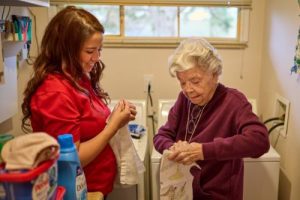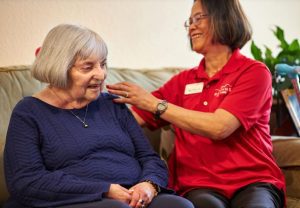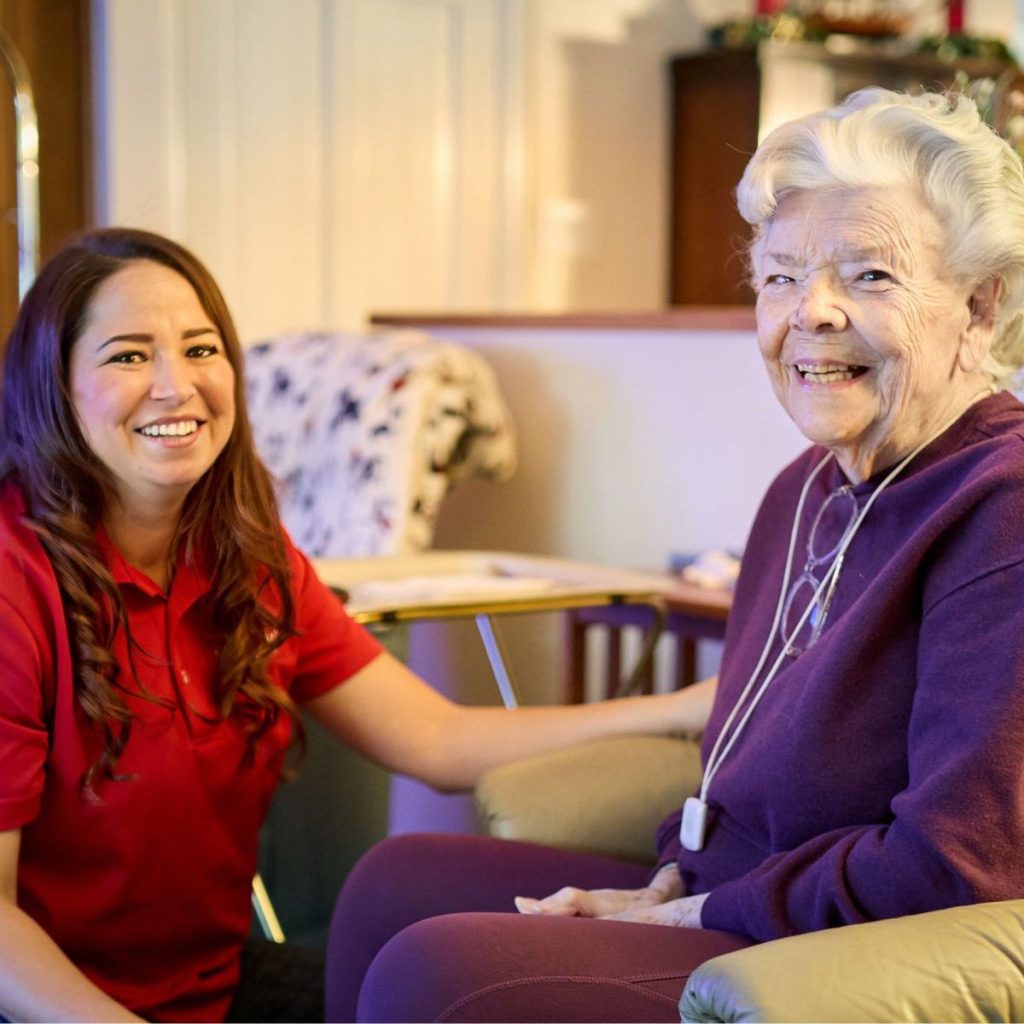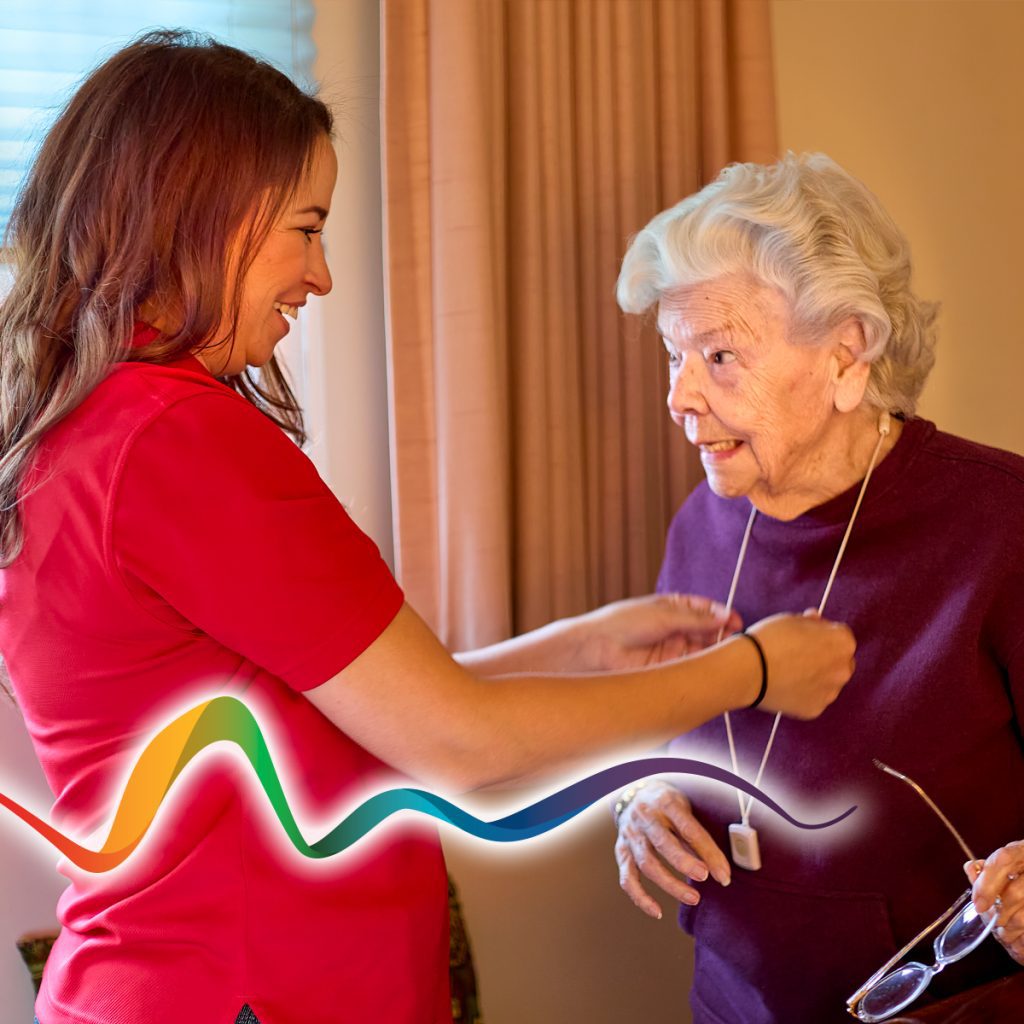Benefits of Aging in Place for Seniors
As your parents age, it is common for friends and family to encourage them to think about moving into a senior living community to get the extra care they need. However, most seniors have a hard time admitting or accepting the transition of leaving a place they’ve built and called home for so long. According to a survey by the American Association of Retired Persons (AARP), more than three-quarters of Americans age 50 or older want to stay in their own home for as long as possible, even if they will need assistance.
Aging in Place and the Benefits
Exploring these options can help us understand the benefits of this type of care and why investing in services that allow your loved one to age in place may be a better choice than relocating them to a care facility.
Why Seniors Prefer Aging in Place
Aging in place allows older adults to maintain a sense of independence. It doesn’t force them to become dependent on their care partners in ways they don’t need to. This improves their quality of life because it helps them maintain control by choosing for themselves, even in a more limited capacity. This establishes a sense of well being and purpose.
Maintaining Independence Through Aging in Place
When your loved one ages in place, they maintain their routine in familiar surroundings, making it easier to navigate and stay independent. Even when they need help, the care is provided in a comfortable, known environment, reducing stress and easing the transition.
Community Connections and Aging in Place
Aging in place allows your loved one to preserved long-term relationships that are crucial for their mental well-being. Removing them from these familiar connections can negatively impact their emotional stability. Staying in their own home helps them maintain these important relationships, supporting their sense of self and overall health.
Discovering the advantages of aging in place, as highlighted above, while embracing an innovative approach tailored to the individual’s natural rhythm of life, Home Care provides services aligned with the unique needs of both you and your loved one. At Rhythms Home Care, there are non-medical, transitional, such as after a stay at rehabilitation, and medical services to choose from.
Assessing Home Care Support Needs
 Before making any decisions, it is useful to consider how much help is needed, and what is available. It is important to be realistic regarding how much help family and friends can provide on a long-term basis. Making a list of specific care needs by day, week, and month will help determine the amount of care needed. Learn more about what to consider when choosing home care services.
Before making any decisions, it is useful to consider how much help is needed, and what is available. It is important to be realistic regarding how much help family and friends can provide on a long-term basis. Making a list of specific care needs by day, week, and month will help determine the amount of care needed. Learn more about what to consider when choosing home care services.
Home Care Services for Aging in Place
Should your loved one make the decision to stay in their home, below is a variety of services and benefits Rhythms offers.
- Personalized and custom care plans designed around you or your loved ones unique needs
- Trained and insured professional staff and providers who all receive value-based hospitality and dementia support training
- Care partners available 24/7, RN supervision, and flexible options available from 4-hour to 24-hour (Rhythms Home Care is one of the only local companies that offer a 4-hour time window!)
Preventing Caregiver Burnout with Home Services
There are millions of Americans – nearly 17% of the U.S. adult population – who are providing unpaid daily care to their aging parent, spouse, or family member. Due to the fact that this care is usually coupled with other responsibilities, many are at risk of caregiver burnout.
Caregiver burnout is typically characterized by feelings of anxiety of depression, a lack of autonomy, the inability to care for themselves – as well as guilt and overwhelming feelings of having too much on one’s plate. While there are strategies to mitigate and prevent burnout, it is important for both caregivers and those being cared for to recognize the need for more assistance.
At Rhythms Home Care, there is a highly trained team dedicated to providing that additional caregiver support so loved ones can continue to successful live in their own homes. With services including medication reminders, assistance with dressing and bathing, transportation, light medical services, and specialized dementia care. Partnering with an at-home services provider can help lessen the chances of burnout while offering a new level of support.
Aging in Place with Memory Conditions
Some people believe that if their loved one is experiencing dementia or has been diagnosed with Alzheimer’s that their only alternative is for them to move to a memory support community. However, this is not always the case. The familiarity of surroundings and general routine can be beneficial for those living with memory loss. A qualified care partner who has been trained in the area of memory loss can help your loved one age in place. With Rhythms Home Care memory support services, we focus on the strengths of each individual living with dementia rather than their deficiencies.
 We consider family members as those living with dementia as well, because we know it is a “whole community” disease. Rhythms Home Care ensures every team member learns that dementia is a shift in the way a person experiences the world around him/her. Our job is to create environments where each person can navigate the world successfully and create worlds where life is worth living.
We consider family members as those living with dementia as well, because we know it is a “whole community” disease. Rhythms Home Care ensures every team member learns that dementia is a shift in the way a person experiences the world around him/her. Our job is to create environments where each person can navigate the world successfully and create worlds where life is worth living.
Creating a Safe Home Environment for Seniors
Make sure your family member can age in place safely. Do any modifications need to be made to reduce the risk of falls? Do the door handles and faucets need to be replaced for ease of use? Modern technology, such as medical alert systems, should be considered as well. These important changes can help increase the level of independence and safety for older adults wanting to age in place. Consider these tips from the National Institute on Aging on making an older adult’s home safe and accessible.
Making the Decision to Age in Place
Aging in place is a good choice for people who are proactive and want to be involved in the decisions regarding their future. Having a support network of friends and family that value this decision making process with the older adult involved will assure great success. Aging in place has many benefits, the most important being the ability to live in safety, comfort, and dignity in a person’s later years.
Is home care right for me? Take this online assessment for helpful information.
Rhythms is here to help you navigate through this life change. Download our free guide on having the conversation about home care, and contact us to learn more about how we can support you and your family.





